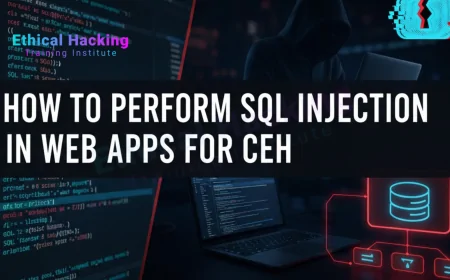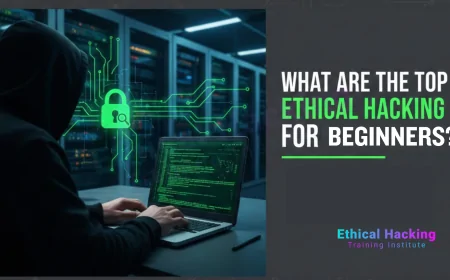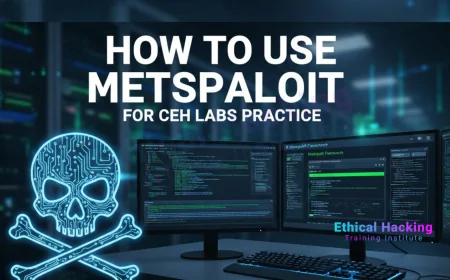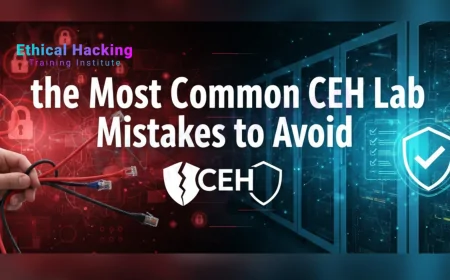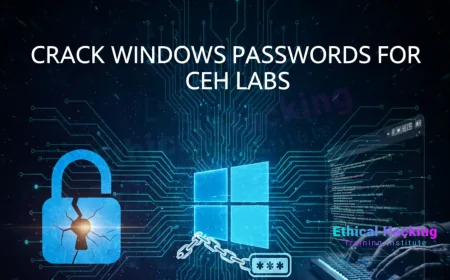Free Ethical Hacking Courses: Learn the Basics Without Paying | Free Online Ethical Hacking Classes for Beginners
Explore the best free ethical hacking courses for beginners. Learn cybersecurity basics, tools, and skills without spending any money.
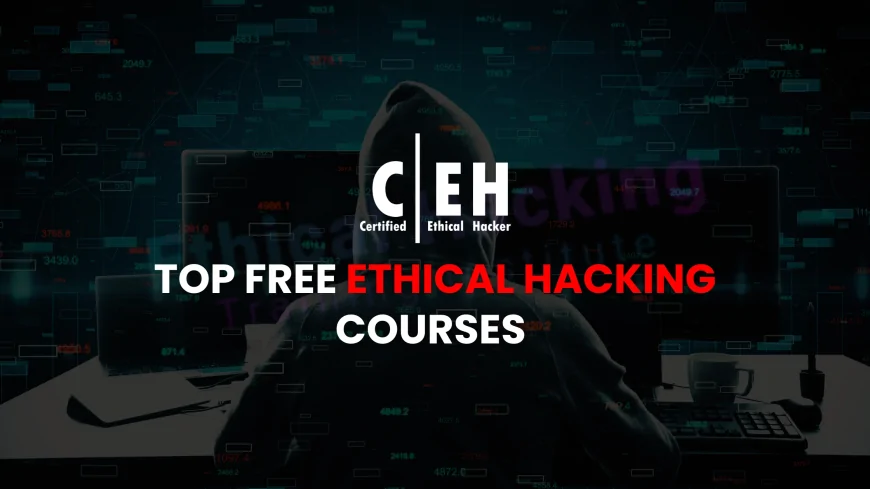
Table of Contents
- Introduction
- Why Learn Ethical Hacking for Free?
- Advantages and Limitations of Free Courses
- Top Free Platforms for Ethical Hacking
- A Starter Learning Path Using Free Resources
- Must-Know Tools You’ll Use
- Strategies for Maximizing Free Learning
- Free vs. Paid Courses: What to Know
- Community and Support Networks
- Certifications You Can Earn After Free Training
- Frequently Asked Questions (FAQs)
- Conclusion
Introduction
Ethical hacking—also called white-hat hacking—is the practice of using hacking tools and techniques to find security flaws in systems, applications, and networks. While many courses charge hundreds or thousands of dollars, there are excellent free resources that let beginners build a strong foundation without spending a rupee. This guide explores those free offerings, how to use them effectively, and how they can help you launch a career in cybersecurity.
Why Learn Ethical Hacking for Free?
Getting started in ethical hacking can seem daunting, especially when cost is a concern. Here are key reasons to begin with free courses:
- Low Barrier to Entry: You can explore the field without committing financially.
- Time and Goal Testing: Free resources let you see if hacking fits you before investing.
- Accessible Anytime: Many platforms allow self-paced learning around your schedule.
- Strong Community: You’ll find support networks and peer interactions without paid tiers.
Advantages and Limitations of Free Courses
While free courses are invaluable, it's important to understand their strengths and limitations:
- Advantages:
- No cost
- Great for fundamentals
- Practical, hands-on exercises
- Community-driven support
- Limitations:
- Less structured than paid alternatives
- Few or no certifications included
- Limited mentorship or live instruction
- Advanced content may be gated
Top Free Platforms for Ethical Hacking
TryHackMe
TryHackMe offers high-quality, beginner-friendly rooms and pathways like “Complete Beginner” and “Pre Security”. You learn commands and techniques on a live virtual machine. While many rooms are free, advanced modules require a subscription.
Hack The Box (HTB)
Hack The Box gives access to free “starting point” lab machines and publicly released retired boxes. These are ideal for learning Linux commands, network enumeration, and basic exploitation.
Cybrary
Cybrary offers free “Introduction to IT & Cybersecurity” and “Ethical Hacking” courses, with video lessons. Paid tiers unlock labs and certification practice.
OWASP Juice Shop
The OWASP Juice Shop is a deliberately vulnerable web application you can install locally and hack against. It’s an excellent hands‑on playground for SQL injection, XSS, authentication flaws, and more.
Google CTF & Google Cybersecurity Certificates
Google’s Capture the Flag (CTF) challenges are open to all, with beginner and advanced levels. Their free cybersecurity certificate program offers a foundational introduction to security principles.
A Starter Learning Path Using Free Resources
- Learn Linux basics: TryHackMe’s “Complete Linux Fundamentals”.
- Understand Networking: Cybrary’s free Networking fundamentals course.
- Basic Reconnaissance: Hack The Box Starter Machines + Nmap tutorials.
- Web Hacking: OWASP Juice Shop + TryHackMe’s “OWASP Top 10” room.
- Intermediate Labs: Hands‑on HTB “Starting Point” boxes.
- Capture the Flag: Google CTF beginner rooms.
- Join Community: Participate in Discord, Reddit, or local meetup groups.
- Build a Portfolio: Document all completed labs and write blog posts.
Must-Know Tools You’ll Use
- Nmap – network discovery and port scanning
- Netcat – for listening and banner grabbing
- Wireshark – packet analysis
- Burp Suite Community Edition – web application testing
- Metasploit Framework – penetration testing
- Kali or Parrot OS – built-in ethical hacking environments
- OWASP ZAP – open source web scanner
Strategies for Maximizing Free Learning
To get the most from free resources:
- Create a structured plan: Set weekly goals aligned to your learning path.
- Take notes: Write techniques, commands, and screenshots as you work.
- Teach others: Discuss methods and solutions on forums.
- Contribute solutions: Help solve CTFs or labs and share your writeups.
- Track progress: Maintain a portfolio of exploited machines and vulnerabilities.
Free vs. Paid Courses: What to Know
Free content gives a solid foundation; paid courses offer deeper learning, official certification, labs, support, and career services. Use free learning to vet your interest, then invest in paid if it suits your goals.
Community and Support Networks
Learning is easier with help. Join:
- TryHackMe Discord communities
- Hack The Box forums or Discord
- Reddit subs: r/Netsec, r/AskNetsec, r/hacking
- Local cybersecurity meetups
Certifications You Can Earn After Free Training
Free training primes you for entry-level certifications:
- CompTIA Security+: Recognizes foundational security knowledge.
- eJPT (eLearnSecurity Junior Penetration Tester): Affordable, entry-level certification.
- Google Cloud Digital Leader: If you explore Google’s cybersecurity content.
Frequently Asked Questions (FAQs)
1. Are free ethical hacking courses enough to start a career?
They provide foundational knowledge and hands-on experience, but you’ll likely need to follow up with certifications and advanced training to qualify for jobs.
2. Can I get certified without paying anything?
Not always—most formal certifications cost money. However, free training prepares you well for entry-level certifications like Security+ or eJPT.
3. Which is the best free platform for beginners?
TryHackMe's "Complete Beginner" pathway is one of the most structured and accessible starting points.
4. Do free courses provide any labs?
Yes. Platforms like TryHackMe and OWASP Juice Shop provide interactive virtual labs you can hack on directly from your browser.
5. How much time should I spend per week?
At least 5–7 hours weekly for 2–3 months builds a solid foundation; more time speeds up progress.
6. Do I need a high‑end PC?
No—most labs run in browser or use lightweight virtual machines. Use a machine with 8GB RAM and basic virtualization features.
7. Will I learn Linux from free courses?
Absolutely. Many free learning paths begin with Linux Fundamentals on TryHackMe or Cybrary.
8. What is CTF?
CTF stands for Capture the Flag—a gamified hacking challenge where you solve puzzles and vulnerabilities to earn points.
9. Can I learn web hacking for free?
Yes, OWASP Juice Shop and TryHackMe’s web-related rooms teach SQLi, XSS, CSRF, and more.
10. Are there certifications available only via free courses?
Most certifications cost money, but Google offers basic cybersecurity certificates accessible after completing free modules.
11. How do I track my learning progress?
Use spreadsheets or tools like Notion to track completed modules, labs, and writeups.
12. Can I use my smartphone?
Basic learning is possible, but virtualization and tools work best on a desktop or laptop.
13. Are these courses legal?
Yes—they teach ethical hacking within legal and permission-based environments. Always only hack targets you own or have permission to test.
14. How do I showcase my work?
Publish writeups on a personal blog or GitHub. It showcases your skills and builds credibility.
15. Will I find a job after free training?
Free training helps build skills; job opportunities improve significantly after gaining certifications or paid training.
16. Do I need to be good at programming?
Basic scripting (Python, Bash) helps, but not mandatory for entry-level learning stages.
17. Are there free networking courses?
Yes—Cybrary and TryHackMe offer free networking fundamentals to build your foundation in recon and exploitation.
18. What communities should I join?
TryHackMe Discord, HTB forums, Reddit (r/netsec, r/AskNetsec), and local cybersecurity groups are great starting points.
19. How do I stay motivated?
Join study groups, set weekly milestones, participate in CTFs, and celebrate small wins like completing your first lab.
20. What comes after free learning?
Advance to intermediate and paid training, earn certifications, build a portfolio, and apply for internships or entry-level security roles.
Conclusion
Free ethical hacking courses are an excellent way to begin your cybersecurity journey. Platforms like TryHackMe, Hack The Box, Cybrary, and OWASP offer foundational knowledge and hands-on experience at zero cost. While they have limitations in structure and certification, with dedication, community support, and consistent practice, you can build strong skills and prepare for future paid certifications or job opportunities. Start small, remain consistent, and leverage free resources to pave your path in ethical hacking!
What's Your Reaction?
 Like
1
Like
1
 Dislike
0
Dislike
0
 Love
2
Love
2
 Funny
0
Funny
0
 Angry
0
Angry
0
 Sad
0
Sad
0
 Wow
1
Wow
1







